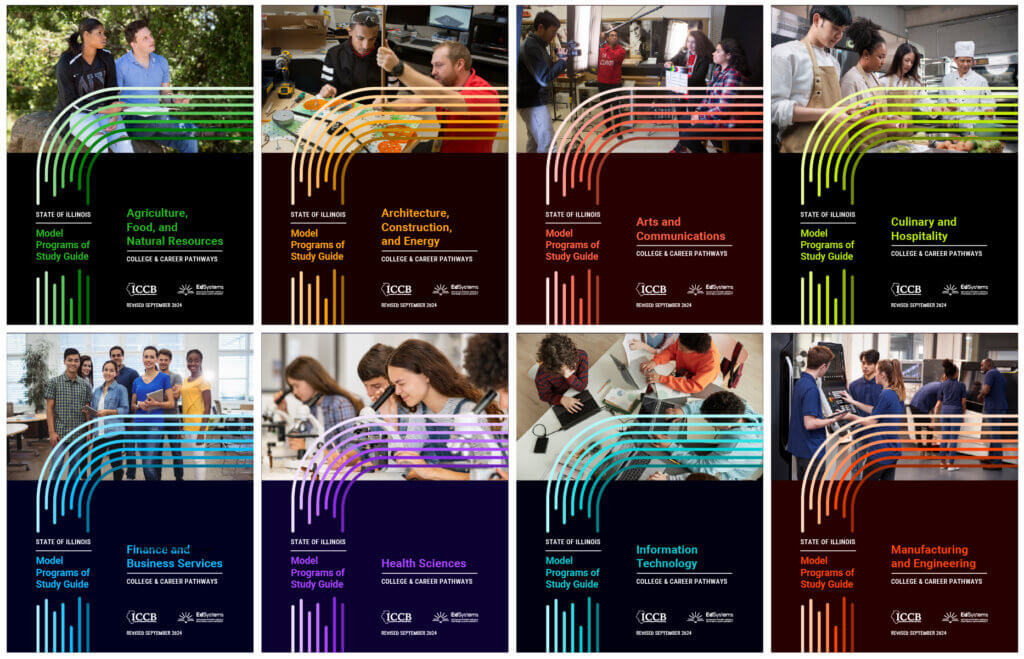To continue supporting school districts and community colleges in developing secondary-to-postsecondary college and career pathways, EdSystems, in partnership with the Illinois Community College Board, is releasing updated versions of eight of the State of Illinois Model Programs of Study Guides to reflect updated labor market information. The updated guides are for the sectors of agriculture, food, and natural resources; architecture, construction, and energy; arts and communications; education; finance and business services; health sciences and technology; information technology; and manufacturing and engineering.
The key differences in the newly updated guides include:
- Recalibrating the labor market information and approach to living wage benchmarks used to define high-priority occupations and promising credentials that are unique to each guide.
- Re-imagining the tables and diagrams that exemplify the selected occupations and postsecondary programs that are central to each guide’s industry sector analysis.
The resulting guides were open for public comment through June 21, 2024. Final versions were released in September 2024.
Learn More About the Revisions
On May 21, 2024, the EdSystems team provided an overview of the revisions to the State of Illinois Model Programs of Study Guides.
Background on the Guides
The Illinois Community College Board sponsored the development of the State of Illinois Model Programs of Study Guides in crucial industry areas as part of the Illinois State Plan for Strengthening Career and Technical Education for the 21st Century Act (also known as the Perkins V plan). The guides were developed in consultation and collaboration with the Illinois State Board of Education through a process led and facilitated by EdSystems. As detailed in each guide, the process involved extensive research into labor market information and credential programs, as well as dialogue across secondary, postsecondary, and employer stakeholders.
The primary purposes and goals for the Model Programs of Study are to:
- Provide guidance and exemplars for local pathway programs to adopt or customize as they develop programs of study for approval as part of Perkins V or Illinois’ College and Career Pathway Endorsements.
- Identify priority dual credit courses that are foundational to the industry sector’s program of study and well-situated for statewide scaling and articulation.
- Define the competencies that should be sequenced across a program of study course sequence to prepare students for the future of work in that industry area.
Model Programs of Study supplement and complement other State of Illinois career and technical education and career pathway resources, including the ISBE Career Guide, State of Illinois Career Pathways Dictionary, Career Development Experience Toolkit, Recommended Technical and Essential Employability Competencies, State of Illinois Workforce Development Strategic Plan, and related state and regional data resources. School districts, community colleges, and their partners are encouraged to use this guide, state resources, and local program and course information to develop student and family outreach materials.
The Illinois Model Programs of Study Guides can be used as a reference in local planning processes. The guides present and describe each component of the sequence in detail, including descriptions of the underlying research, analysis, and advisory committee input. In addition to the complete guide, a pathway map depicting diagrams of the secondary to postsecondary sequences, as well as a table of the selected occupations, wages, and job growth, are available.



